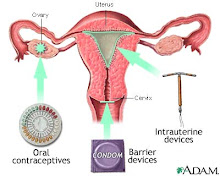The Morning after Pill
The “morning after pill” is an emergency contraception used within 72 hours after sexual intercourse, to achieve the prevention of pregnancy. This method is a good idea in theory but its process is actually quite dangerous for women. Women are exposing themselves to double the amount of hormones a typical birth control pill may contain, if a woman has experienced contraception failure or experienced a sexual assault then she should be able to receive emergency contraception with a prescription.
Women are exposing themselves to double the amounts of progesterone and estrogen two artificial steroids that are typically found in birth control. The contraception works by inhibiting ovulation, altering the normal menstrual cycle, and irritating the lining of the uterus so that if the first and second methods fail, the human being would die because it could not attach to the lining of the uterus. Simply put, the morning after pill is a chemical abortion. The effects of this chemical abortion are nausea, vomiting, infertility, breast tenderness, blood clot formation, and if the morning-after pill fails to prevent pregnancy, there is an increased chance it is an ectopic pregnancy.
The purpose of this paper is to discuss the negative aspect of the emergency contraception even though it may be effective it is still quite dangerous. The two steroids progesterone and estrogen are consumed in high doses may be quite dangerous. It has been tested that estrogen increases the risk that you will develop endometrial cancer. It has also been studied that women who have taken estrogen have a higher risk of heart attacks, strokes, blood clots in the lungs or legs, breast cancer, and the loss of ability to think, learn, and understand; known as dementia.
Progesterone the other steroid found in the emergency contraception can cause side effects that may impair your thinking, cause sudden numbness, chest pains, problems with vision, speech, the steroid even may cause symptoms of depression. I feel that this pill will be more effective and less dangerous if they could determine a method that does not introduce such high levels of steroids to women.
Also, with this pill being a chemical abortion one must make the moral and ethical decision about aborting a life. Many believe that life begins at contraception, and human rights should protect a human pre-embryo, embryo and fetus. When a women decides to take the morning after pill she needs to realize that there are two lives that should be considered, that woman’s and her embryo or fetus.
Emergency contraception has unfortunately become popularly known as “the morning after pill.” This is a poor term to use because it implies that women have only a small interval of time to take the medication. From the term some people have concluded that a woman has to wait for many hour before the pill may be effective for instance the “morning after”. Others believe that the treatment is no longer effective if a woman waits past the next morning. In all honesty neither is true; the medication can be taken immediately after unprotected intercourse, or at any time up to about 72 hours later. Some studies indicate that it is effective even later. However, its efficacy seems to be reduced as time passes, so it is important that, if it is going to be taken, that it be taken quickly.
It also important to know that Emergency contraception, if taken within 72 hours of unprotected sexual intercourse will prevent a pregnancy from starting in about only 90% of its cases. However, many pharmacies refuse to stock the medication and many pharmacists refuse to dispense it on moral or religious grounds. Since there are so many hurdles that women may encounter while trying to obtain this medication in the future because of rape or contraceptive failure might wish to determine, in advance of need, the nearest pharmacy which will supply them with medication. They might also wish to obtain a prescription from their physician, and perhaps even purchase the medication to have it on hand in case they need it.
Subscribe to:
Post Comments (Atom)


No comments:
Post a Comment